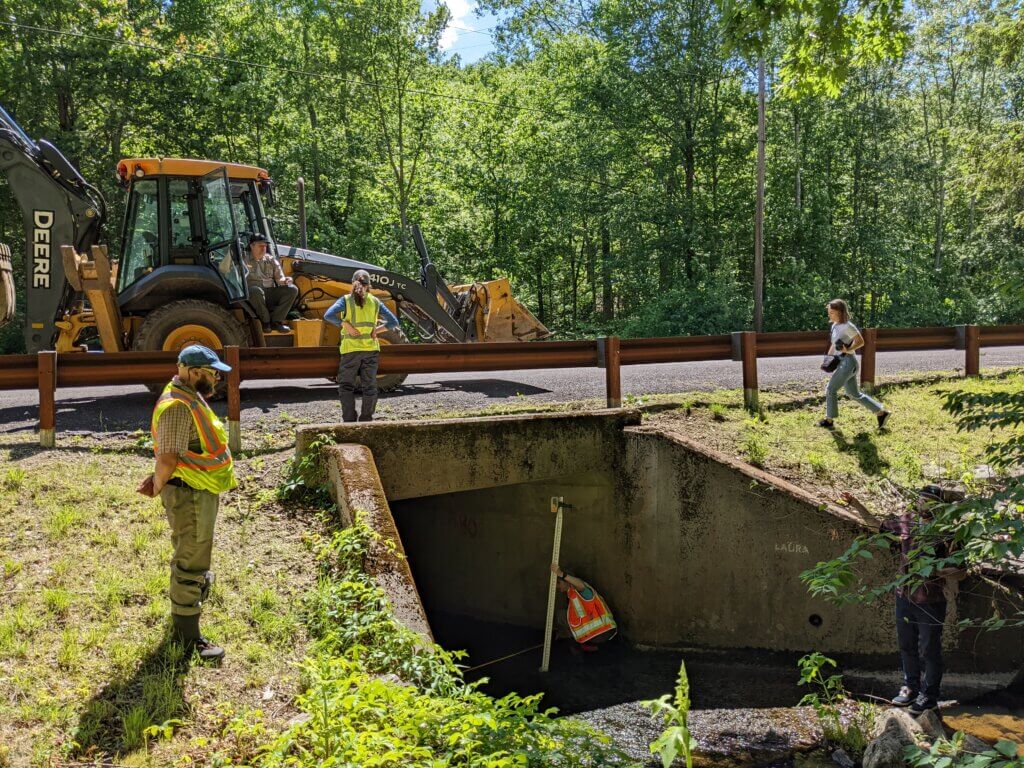FOR IMMEDIATE RELEASE: May 9, 2024
Contact:
Richard Donovan
Transportation Planning Director
Naugatuck Valley Council of Governments
203-489-0361
Rdonovan@nvcogct.gov
NVCOG Awarded $1.2 Million from PROTECT Program to Advance Transportation Resilience
(Waterbury, CT) – The Naugatuck Valley Council of Governments, in collaboration with the Capitol Region Council of Governments (CRCOG), Northeastern Connecticut Council of Governments (NECCOG) and Northwest Hills Council of Governments (NHCOG), will receive $1.2 million under the USDOT Promoting Resilient Operations for Transformative, Efficient, and Cost-Saving Transportation (PROTECT) Program to enhance transportation resilience across their respective regions in Connecticut. The funding will be used to assess and determine the vulnerability and risks to locally owned transportation infrastructure and services from current and future major natural events.
NVCOG and partnering Councils of Governments will use the funding to assess vulnerabilities of the local transportation infrastructure to the effects of changing climate and develop a Resilience Improvement Plan for the four northern, non-coastal regions of Connecticut, encompassing 94 cities and towns and 1.6 million people. In recent years there has been a noticeable increase in the frequency and intensity of rainfall events in Connecticut, with further increases predicted by the 2019 Connecticut Physical Climate Science Assessment Report (PCSAR) and the National Climate Assessment estimates. The NVCOG Hazard Mitigation Plan Update indicates that the concentration of development next to bodies of water introduces increased risk of flooding and erosion. Flooding from rivers already has dramatic impacts on the region’s municipalities, rendering roads impassable and flooding homes and businesses. Catastrophic flood events punctuate the region’s historical record and have left indelible marks on the natural and built environment. The Resilience Improvement Plan will evaluate the risk and impacts of extreme weather events and examine how climate stressors will affect transportation systems and the communities that rely on them.
The Bipartisan Infrastructure Law (BIL) established the PROTECT Program to help make surface transportation more resilient to natural hazards, including climate change, sea level rise, flooding, extreme weather events, and other natural disasters through support of planning activities, resilience improvements, community resilience and evacuation routes, and at-risk costal infrastructure. Development of a Resilience Improvement Plan will give the included communities the ability to apply for future rounds of implementation funding.
“We are thrilled to receive the award as it empowers NVCOG to advance critical transportation resilience efforts and complement the concurrent Resilience Improvement Plan being completed by the Connecticut Department of Transportation (CTDOT). The project will focus on roads, bridges and culverts located on local roads which are not included in the plan being developed by CTDOT,” stated Mark Nielsen, Assistant Director of NVCOG.
“The Capitol Region Council of Governments is pleased to partner with NVCOG, NWHills COG, and NECCOG on the development of a Regional Resilience Improvement Plan. Identifying priority roadways and other transportation assets that are impacted from natural hazards, like flooding, is a critical step towards solving the problem,” says Matt Hart, Executive Director of CRCOG. “We are grateful for the funding offered through the Bipartisan Infrastructure Law that recognizes the importance of acting now to protect future generations from worsening natural hazards.”
“The Northeastern Connecticut Council of Governments (NECCOG) is excited about the awarding of this grant addressing climate resilience,” said John Filchak, NECCOG Executive Director. “We look forward to working with NVCOG, NWHills COG and CRCOG to set forward strategies to protect our transportation infrastructure from the realities of climate change,” he added.
“The NHCOG expresses its gratitude to the NVCOG for being the lead agency on this award, and we’re excited to partner with our fellow northern tier COGs to develop a Resilience Improvement Plan to evaluate the risks and impacts of our transportation infrastructure, and develop a plan to better prepare communities to be more resilient to the impacts of the growing number of extreme weather events,” stated Kathryn Faraci, Transportation Planning Director at the NHCOG.
The project team will work closely with all municipalities located in the project area and intends to engage the public and those most affected by the effects of climate change throughout the project.


